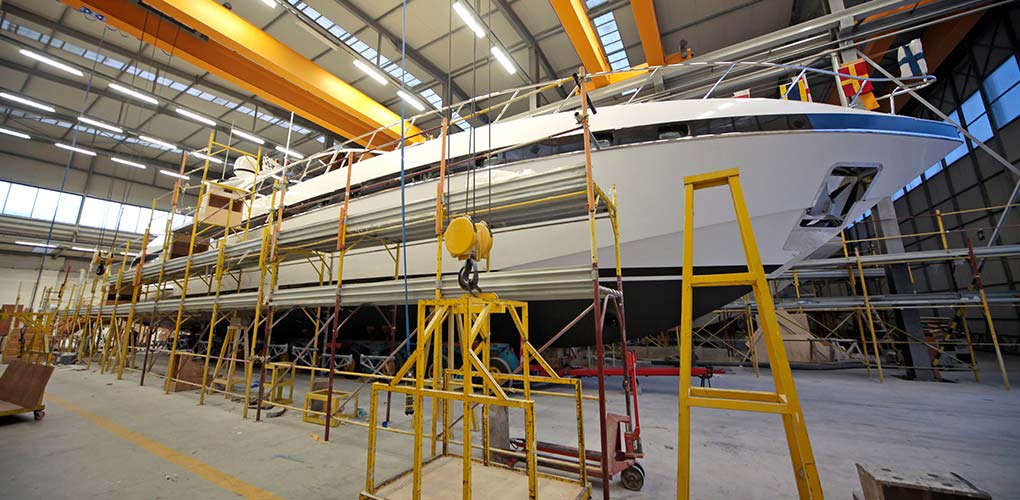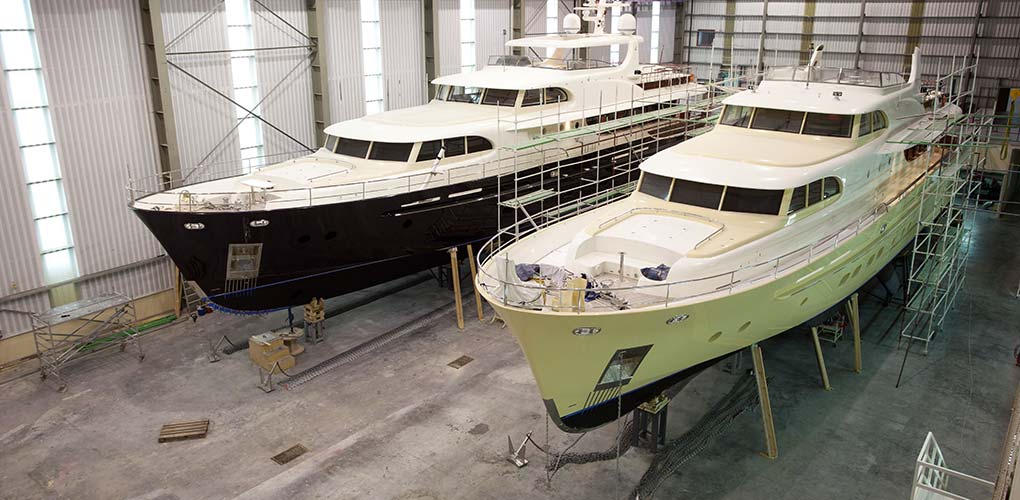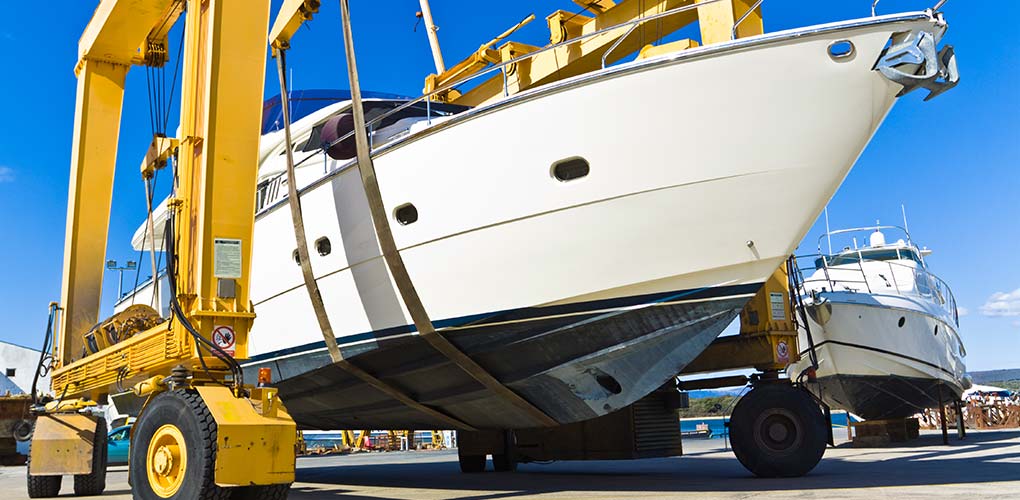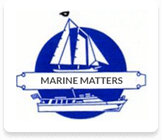
Domestic Commercial Vessels
- Periodic Surveys for the renewal of an AMSA Certificate of Survey
- New Build Surveys for a proposed AMSA Certificate of Survey or AMSA Certificate of Operation
- Repairs or Modifications Inspections for an AMSA Certificate of Survey
- Positive Floatation Testing
Domestic Commercial Vessel registration is very complex and changes are often made so this information should be used as a guide only. The Australian Maritime Safety Authority web site, in the section titled ‘Domestic Commercial Vessels’, has many excellent Guidance Notices for vessel owners and operators regarding the Certificate of Survey and the Certificate of Operation, and also has copies of all the AMSA Forms that need to be submitted for these Certificates, or for the annual renewal of these Certificates.
Generally, any vessel in Australia under 45 metres in length, that is used commercially must be built and operated under the National System for Domestic Commercial Vessel Safety (although there are exceptions) and the Australian Maritime Safety Authority (AMSA) is now the Regulator but until 2017 each State or Territory has an AMSA Delegate, such as Maritime Safety Queensland in Queensland. There are other International standards for commercial ships that may be recognised by AMSA such as DNV and GL.
These Domestic Commercial Vessels require an AMSA Certificate of Operation for a specific area of operation, or an AMSA Certificate of Survey for operation anywhere in Australia. AMSA has excellent guidance notes for both these Certificates. Although AMSA accredited marine surveyors are able to operate anywhere in Australia, some States and Territories use government employed marine surveyors and others, such as Queensland, use privately operating marine surveyors. Eventually, all AMSA accredited marine surveyors will need to operate privately and carry specific insurance for marine surveying.


AMSA accredited marine surveyors are only accredited in their areas of expertise so there are marine surveyors with accreditation for areas such as electrical, aluminium construction, FRP construction, machinery, safety equipment, or a combination of these. Marine Matters marine surveyors have AMSA accreditation and some have prior experience as shipwright/boat builders. There is currently a wide variation in experience between all the newly AMSA accredited marine surveyors so it is well worth checking that a chosen surveyor has had some practical experience of actually being on board a vessel and conducting a Periodic Inspection to NSAMS.
Generally, if a vessel has not been built to a standard, with the necessary documentation issued at the time of the construction, it is not economical to do it retrospectively. Once a vessel has been registered as a commercial vessel, it needs to be inspected annually to maintain the registration. Some older commercial vessels may have been registered under the old Uniform Shipping Laws Code (USL Code) and may have been able to be transferred to the new standard, but if their registration lapses, or they have a marine incident and need repairs, or an on-board system needs to be replaced, the new parts and the installation must comply with the NSCV.
Periodic Surveys for the renewal of an AMSA Certificate of Survey
Periodic Surveys are conducted annually, or at other times depending on the part of the vessel that needs to be checked. The vessels owner/operator completes either an Application for an AMSA Certificate of Survey (AMSA Form 521) or an AMSA Certificate of Operation (AMSA Form 504). These forms are also used for the renewal of a Certificate. The Forms are given to the owner/operators chosen AMSA accredited marine surveyor to start the process.
Periodic Surveys are conducted using a sort of checklist that is part of NSAMS Chapter 4. Marine Matters provides their clients with a ‘Wish List’ that lists the documentation required, a copy of the NSAMS Checklist, and a copy of an AMSA Form 901, so the client knows what the surveyor will be checking which helps them prepare their vessel and reduces the number of re-inspections that are an added cost.
If the vessel has any non-compliant items the surveyor completes an AMSA Form 586: ‘SURVEY ACTIVITY REPORT DOMESTIC COMMERCIAL VESSELS Marine Safety (Domestic Commercial Vessel) National Law Act 2012 Marine Safety (Domestic Commercial Vessel) National Law Regulation 2013’, and lists the non-compliances. A copy goes to the vessel owner and another copy goes to AMSA. When the owner has ensured the vessel is compliant, the surveyor returns and reinspects the vessel to verify that the changes have been made. Re-inspections are charged out depending on the time they take to complete.
The surveyor then has to complete an AMSA FORM 901: SURVEY REPORT AND RECOMMENDATION Marine Safety (Domestic Commercial Vessel) National Law Act 2012, Schedule 1 Marine Order 503 (certificates of survey – national law) 2013’ and an AMSA Form 606 ‘ACCREDITED SURVEYORS RECOMMENDATION TO THE NATIONAL REGULATOR Marine Safety (Domestic Commercial Vessel) National Law Act 2012 Marine Order 503 (Certificates of survey – national law) 2013’. Other Forms may be required for specific parts of the vessel such as the electrical system or fuel tank inspections.
Many owners find the Safety Management System the most difficult document to out together correctly. There are now people who specialise in preparing these for vessel owners.
New Build Surveys for a proposed AMSA Certificate of Survey or AMSA Certificate of Operation
Before construction can begin, Builders have to submit an Application for an AMSA Certificate of Survey and appoint an AMSA accredited marine surveyor to carry out the inspections at the required stages of the construction. The appointed surveyor provides AMSA with copies of the required Forms as the construction progresses. When the vessel is completed, the owner will receive a copy of the AMSA stamped and approved Drawings and Specifications and copies of the Forms that were submitted. It is particularly important that the vessel has AMSA Forms for the electrical system and the fuel tanks. There are also Forms to be completed for specific construction materials such as FRP or Aluminium, and the tradesmen need to be certified.
Many owners appoint their own AMSA accredited marine surveyor to check the quality of the construction and the compliance of the construction to the Drawings and Specifications. Marine Matters’ surveyors have done many of these inspections and reports.
Repairs or Modifications Inspections for an AMSA Certificate of Survey
Any repairs, modifications or upgrades on vessels with an AMSA Certificate of Operation or Certificate of Survey have to be done to the NSCV standard and signed off by an AMSA accredited marine surveyor.
Positive Floatation Testing
Some types of vessels need a declaration that the vessel will float upright and level when carrying the full capacity of the vessel. The foam has to be of an accepted standard and there needs to be drawings provided to show the location and quantity of the installed foam. The amount of foam and the placement is calculated by a Naval Architect. The vessel then needs to undergo a Swamp Test with measured weights simulating the capacity. An AMSA accredited marine surveyor needs to witness the test and if the vessel passes, a Form is submitted to AMSA. Many vessels are sold with flotation foam installed but it has to be proven that the foam is acceptable and that it will actually float upright and level. Marine Matters have witnessed many of these tests, often with an audience of amused onlookers.
OUR SERVICES
Condition Reports
Marine surveyors are only able to visually inspect the accessible areas of the vessel but most surveyors also use a small hammer to sound the structure, and moisture meters to check for relative moisture levels in FRP composite and timber structures, weather permitting. Infra-red thermal imaging cameras can also be used to detect moisture in these materials. Specialists can non-destructively test (NDT) metal materials for thickness, and welds can be x-rayed, or tested for cracks and porosity with liquid dye penetrene. Engines can be checked using oil analysis kits. Some purchasers also obtain separate reports from other specialists such as engine technicians, marine accredited electricians, and mast, spars, and rigging manufacturers...
Domestic Commercial Vessels
Domestic Commercial Vessel registration is very complex and changes are often made so this information should be used as a guide only. The Australian Maritime Safety Authority web site, in the section titled ‘Domestic Commercial Vessels’, has many excellent Guidance Notices for vessel owners and operators regarding the Certificate of Survey and the Certificate of Operation, and also has copies of all the AMSA Forms that need to be submitted for these Certificates, or for the annual renewal of these Certificates...
Valuations
Marine Matters provides financial institutions, liquidators, Australian customs, insurers, divorcing couples, and accountants with vessel valuations. They request valuations such as ‘Market Value’, Auction or Forced Sale Value’, ‘Agreed Value’, and values before and after marine incidents.
There are published guides for values of smaller, popular, production line vessels but there is no published data base of sale prices for most vessels sold in Australia. Listed asking prices for boats for sale on websites are generally higher than the actual selling prices and the listings are difficult to compare unless they include an extensive description of the vessels for sale...
Consultancy
Clients, who are having a vessel constructed, or their finance companies, are able to consult with Marine Matters and the builders to develop a plan for payments at mutually acceptable stages of the construction. When a payment is due, a Marine Matters’ surveyor checks the construction to ensure the stage has been completed. Compliance with the specifications and the construction standards, as well as the quality of the construction, may also be included in the report if required...
Other Inspections
New Build Progress Reports
Banks and other lenders appoint marine surveyors to certify that a vessel has reached the stage of construction required for a Progress Payment. Marine Matters is accepted by most Australian Financial Institutions for this type of inspection.
Maintenance, and Scope of Work, Lists
Marine Matters surveyors are able to prepare a ‘Scope of Work’ list, for repairs or maintenance, which can be used to obtain quotes for the repairs or maintenance. Some vessel owners have this done before they put their vessel on the market.

